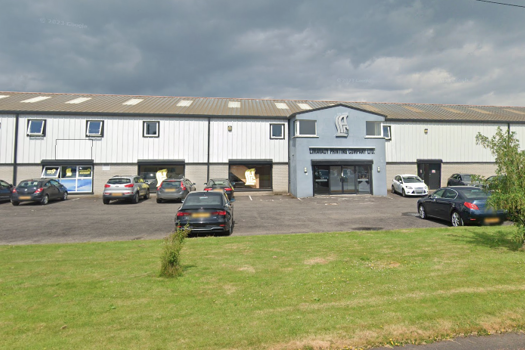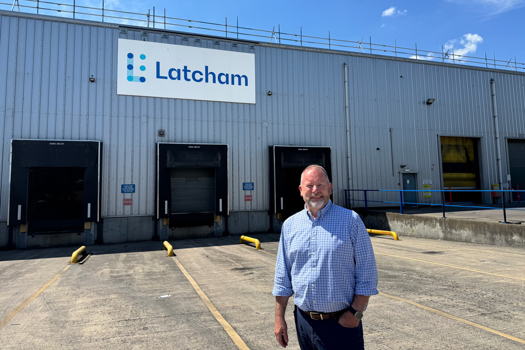The world's resources are being depleted - as much as 1.8 times faster than the planet can replenish them, in fact. E-waste is a major contributor to that problem. From phones and computers to home appliances and printers, figures suggest around 50 million tonnes of e-waste are thrown away every year. That's the equivalent weight of all commercial airliners ever manufactured.
In other words, it's a big problem. But the good news is it already has an equally big solution. By shifting to a more circular economy, it's possible for businesses, individuals and society to cut this figure considerably. That means recycling and regenerating products rather than binning them - and it means minimising waste at every stage of a product's lifecycle.
Clearly, there's work to do in getting there—and it cannot be done alone. Few companies can realistically claim they've successfully ‘closed the loop’. But I'm proud to say HP is well on the way to becoming a circular business.
When we go circular we create value far beyond recycling and waste reduction. We clean up our oceans and protect natural habitats. Just one of the plastics recycling facilities we co-created with a number of charities has processed around 4,500 to 9,000 tonnes of waste plastic every year – plastic that would otherwise have ended up in our oceans. And even further, we unlock new income opportunities for local workers who collect the plastics from landfill, ditches and canals, many of whom are women supporting their families.
I'm a big fan of sharing best practice, especially when it comes to issues that impact us all. So, here are four observations I’ve gathered from HP’s work around sustainability:
1. Be circular by design
The creation of a circular economy begins in the R&D process, by using sustainably sourced materials in product design and packaging, while incorporating ethical working practices throughout the manufacturing process. This is just as important as asking your customers to recycle what they end up buying.
When coupled with sustainable materials in elements such as cartridges and paper, recycled plastics in the very design of the printers can dramatically cut the carbon footprint and emissions of a printer. We’re proving exactly that with the HP DesignJet Studio which is cutting carbon emissions per printer by 6.6 tonnes a year.
But going beyond how materials are sourced and managed, regeneration is fundamental to driving circularity. Nearly half of the world’s forests are under threat, and if we truly want to tackle the climate crisis head on, regenerating our forests must be at the heart of the strategy. At HP we’re already 32% of the way to our goal of countering deforestation for all paper brands used in our products and services by 2030, and we want to inspire the industry to join us on this critical mission.
2. Transparency wins trust
With so many businesses now talking about sustainability, there’s been an understandable backlash from customers against those firms suspected of ‘greenwashing’. Businesses have an obligation to be open and honest.
Businesses must take responsibility to ensure information is readily available, so customers are as informed as possible. Meeting the requirements of third-party accreditors such as ENERGY STAR, TCO, and Blue Angel is also a great way to build trust. We understand this need for transparency, and that’s why HP ensures clear and accurate information on all our labels, packaging, and marketing materials.
3. It matters to the customer
According to the 2023 Edelman Trust Barometer, 63% of people say they buy or advocate for brands based on their own beliefs and values, while 52% say businesses aren’t doing enough to address climate change.
Our own research with Morning Consult found parents around the world favour companies that are taking action to address climate change, with nearly two-thirds (64%) preferring products that are sustainably sourced and 60% saying sustainable company practices play a large part in their purchasing habits.
In short – as well as it being the morally right thing to do, taking meaningful action when it comes to sustainability has clear rewards in the form of winning and retaining business, and a way to boost the bottom line.
4. A rising tide lifts all boats
Building a circular economy is something that no organisation can do alone. From businesses and investors to governments, think tanks, and NGOs - if we all work towards the same goals, we will undoubtedly be faster in achieving them.
As we've experienced ourselves, by partnering with the World Wildlife Fund (WWF) and the Forest Stewardship Council (FSC) to verify our fibre sourcing and certification programmes, collaboration ensures actions have a genuine impact on the ground.
More importantly, a rising tide lifts all boats. As a growing number of companies come together in acting to protect the world's natural resources, more will be motivated to get involved and improve their own operating practices as a result, and thus the collective positive impact grows.
I strongly believe that the businesses who are proactive in spearheading this change to a circular economy, and embed sustainable operating practices within their business models will significantly benefit. As more companies come together, those who pursued a closed-loop business structure sooner will stand out.










